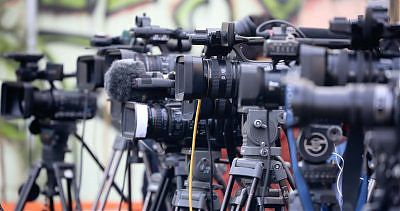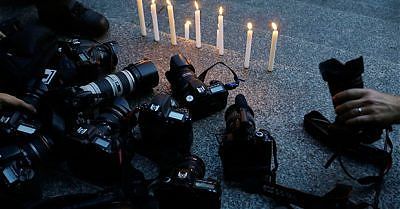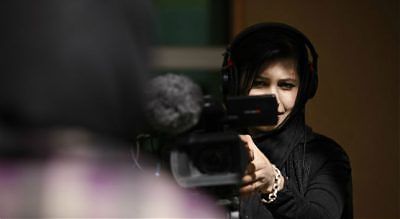Written By: Ilias Alami
After the US intervention in Afghanistan, the number of media organisations there has increased dramatically.
According to an International Security Assistance Force (ISAF) report from 2011, Afghanistan has more than 70 television stations, 175 radio stations and hundreds of newspapers. If we compare Afghanistan’s development in the past ten years, to what it was like 35 years ago – when watching TV, publishing newspapers and criticising the government in public was banned – we witness a big difference. Now the sudden boost in the media has provided a number of Afghans the opportunity to work in this field.
Of course, with this boost came consequences. Professional training in journalism, including the ethics of journalism, were some of the factors these new media workers lacked. This knowledge gap made Afghan journalists vulnerable to threats, harassment and beatings from the government, insurgents and other groups. According to a coordinator of the Journalists Committee in the Northern Province of Kunduz, most of the reporters in that area lack basic skills required in journalism.
From my experience of working as a journalist, I know that it is important to make sure your reports are factual. For example, when people mentioned in reports discover that their words were twisted or abused, they sometimes threaten the reporter.
In southern Afghanistan, where it is very difficult to report because of insurgency, reporters have been threatened and feel they have to pass on insurgents’ propaganda in order to survive. In one case, a journalist was asked by Taliban insurgents to report the death of a coalition forces soldier in an IED explosion. After investigating the report, ISAF and the Afghan Security Forces found this to be untrue. The journalist was then threatened by the Taliban on the phone. Most of the cases registered in journalist protection committees in southern Afghanistan are related to these kinds of incidents.
The vulnerability of Afghan journalists gave international media support organizations, like International Media Support (IMS) and Mediotheck, a platform to enter Afghanistan. They now work to help media workers and journalists improve by providing training. Their work has helped equip Afghan journalists with the knowledge they need to succeed in their job.
I have had the privilege to work alongside many Afghan journalists from national and international media outfits. Among them was a reporter with BBC News, who said that during his ten years of working as a journalist he has never been threatened or forced to do something against his will. I believe that this is because he had proper media training.




